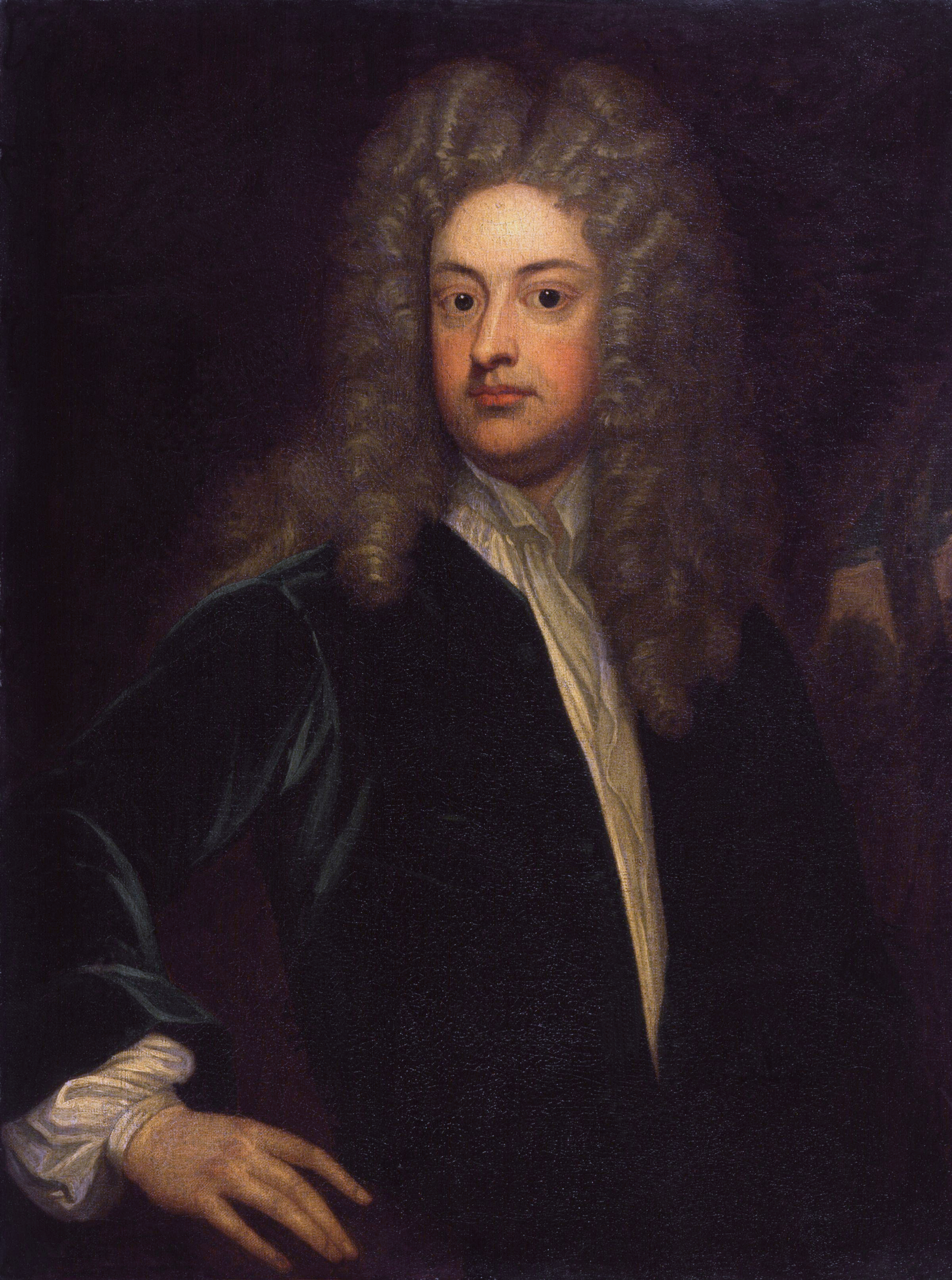Joseph Addison Frases famosas
Everything that is new or uncommon raises a pleasure in the imagination, because it fills the soul with an agreeable surprise, gratifies its curiosity, and gives it an idea of which it was not before possessed.
"The Spectator" (1711-1714); No. 412 (23 de junho de 1712)
“A leitura é para o intelecto o que o exercício é para o corpo.”
Reading is to the mind, what exercise is to the body.
"The Tatler", n. 147; ; The Works of the Right Honourable Joseph Addison - Volume 2, página 284 https://books.google.com.br/books?id=o2xUAAAAYAAJ&pg=PA284, Joseph Addison - J. Tonson, 1721
Variante: A leitura é para a inteligência o que é o exercício para o corpo.
Citações de homens de Joseph Addison
“A natureza delicia-se na comida mais simples. Todos os animais, exceto o homem, comem um só prato.”
Nature delights in the most plain and simple diet. Every animal but man keeps to one dish.
The Spectator, with illustrative notes: to which are prefixed, the lives of authors : comprehending, Addison, Steele, Parnell, Hughes, Buegel, Eusden, Tickell, and Pope : with critical remarks about their writings, Volume 3, Página 343 http://books.google.com.br/books?id=drsRAAAAYAAJ&pg=PA343, Joseph Addison, Sir Richard Steele - Printed for H.D. Symonds, T. Hurst, J. Walker, J. Scatcherd, A. and J. Black and H. Parry, Vernor and Hood, R. Lea, E. Lloyd, Otridge and Son, J Cuthell, Jordan Hookham, W. Miller, S. Bagster, R. Ryan, and R.H. Westley, 1794
Citações de vida de Joseph Addison
Joseph Addison frases e citações
“A educação é para a alma o que a escultura é para um bloco de mármore.”
What sculpture is to a block of marble, education is to the human soul.
"The Spectator (1711-1714)"; No. 215 (6 de novembro de 1711)
“As cores falam todas as línguas.”
Colors speak all languages.
"The Spectator", n. 416, 27 de junho de 1712; "The Works of Joseph Addison: Complete in Three Volumes : Embracing the Whole of the "Spectator," "&c; Por Joseph Addison; Publicado por Harper & Brothers, 1837 books.google http://books.google.com/books?id=vKQ3AAAAIAAJ&pg=PA145&dq=Colors+speak+all+languages.+Joseph+Addison
“Felicidade é alguém para amar, algo para fazer e algo para aspirar.”
citado em "Frases Geniais" - Página 13, de PAULO BUCHSBAUM - Editora Ediouro Publicações, ISBN 8500015330, 9788500015335
Variante: A amizade desenvolve a felicidade e reduz o sofrimento, duplicando a nossa alegria e dividindo a nossa dor.
Joseph Addison: Frases em inglês
No. 465, Ode (23 August 1712).
The Spectator (1711–1714)
No. 117 (14 July 1711).
The Spectator (1711–1714)
“Young men soon give and soon forget affronts;
Old age is slow in both.”
Act II, scene v.
Cato, A Tragedy (1713)
“We are always doing something for Posterity, but I would fain see Posterity do something for us.”
No. 587 (20 August 1714).
The Spectator (1711–1714)
Samuel Johnson in The Rambler, no. 50 (8 September 1750); many of Johnson's remarks have been attributed to Addison
Misattributed
No. 1 (1 March 1711).
The Spectator (1711–1714)
“Great Pompey's shade complains that we are slow,
And Scipio's ghost walks unavenged amongst us!”
Act II, scene i.
Cato, A Tragedy (1713)
“Thus I live in the world rather as a spectator of mankind than as one of the species.”
No. 1 (1 March 1711).
The Spectator (1711–1714)
“Nature does nothing without purpose or uselessly.”
Act V, scene i.
Cato, A Tragedy (1713)
“For ever singing as they shine,
The hand that made us is divine.”
Ode.
Bartlett's Familiar Quotations, 10th ed. (1919)
No. 117.
The Guardian (1713)
“Talk not of love: thou never knew'st its force.”
Act III, scene ii.
Cato, A Tragedy (1713)
“Tis pride, rank pride, and haughtiness of soul:
I think the Romans call it Stoicism.”
Act I, scene iv.
Cato, A Tragedy (1713)
“What sculpture is to a block of marble, education is to the human soul.”
No. 215 (6 November 1711).
The Spectator (1711–1714)
No. 166 (10 September 1711).
The Spectator (1711–1714)
No. 249 (15 December 1711).
The Spectator (1711–1714)
Widely quoted as an Addison maxim this is actually by the American clergyman George Washington Burnap (1802-1859), published in Burnap's The Sphere and Duties of Woman : A Course of Lectures (1848), Lecture IV.
Misattributed
“Tis not in mortals to command success,
But we'll do more, Sempronius; we'll deserve it.”
Act I, scene ii.
Cato, A Tragedy (1713)
" The Life and Teachings of Thoth Hermes Trismegistus http://magdelene.net/Thoth%20Hermes%20Trismegistus.htm", in The Secret Teachings of All Ages (1928) by the Canadian occultist Manly Hall; a few quotation websites credit this to Addison.
Misattributed
“I will indulge my sorrows, and give way
To all the pangs and fury of despair.”
Act IV, scene iii.
Cato, A Tragedy (1713)
No. 255 (22 December 1711).
The Spectator (1711–1714)
